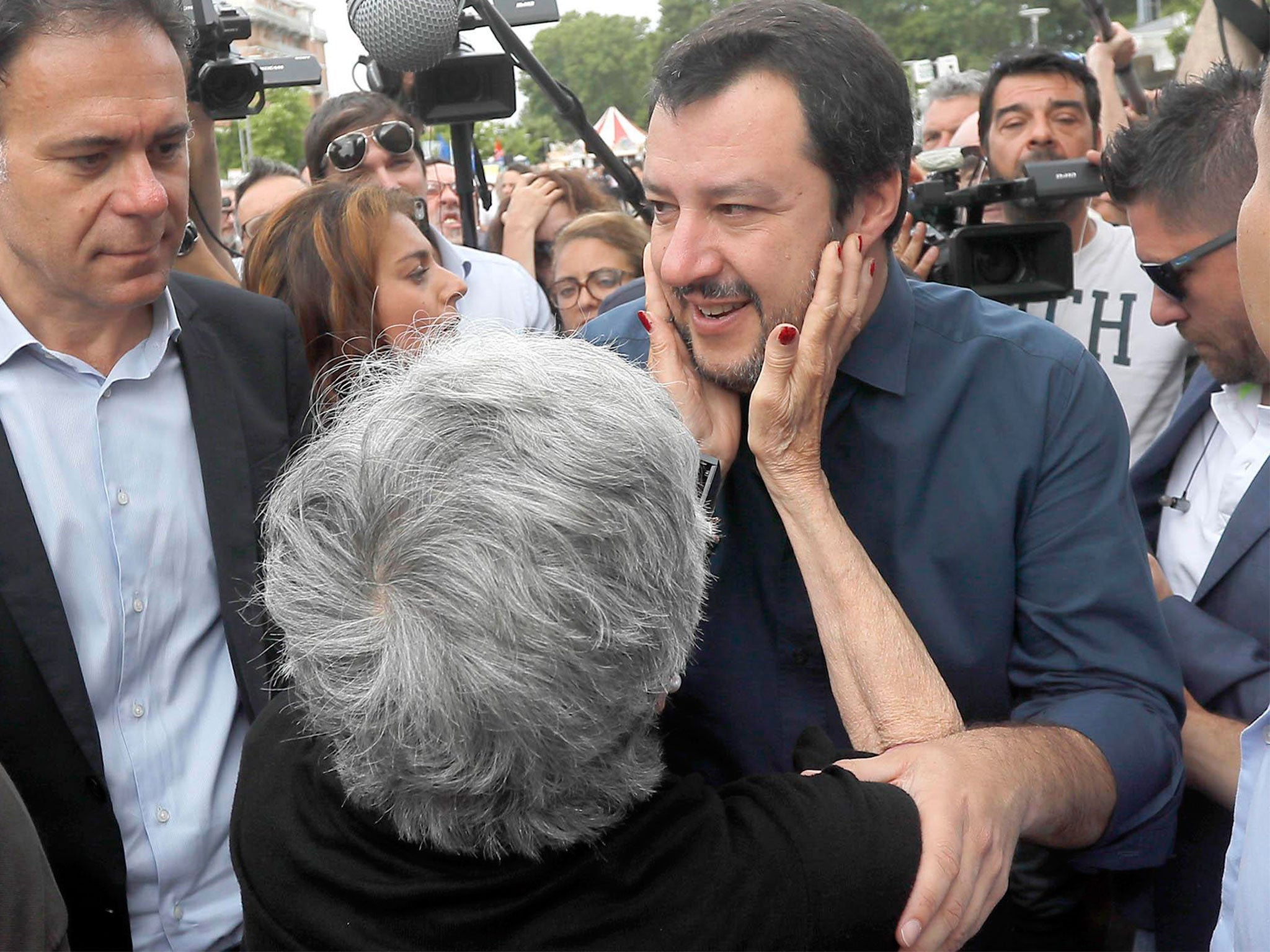Italy election: Leaders of League and Five Star Movement say 'all conditions met' for government deal
Giuseppe Conte nominated as prime minister for second time as country looks set to avoid snap election

Your support helps us to tell the story
From reproductive rights to climate change to Big Tech, The Independent is on the ground when the story is developing. Whether it's investigating the financials of Elon Musk's pro-Trump PAC or producing our latest documentary, 'The A Word', which shines a light on the American women fighting for reproductive rights, we know how important it is to parse out the facts from the messaging.
At such a critical moment in US history, we need reporters on the ground. Your donation allows us to keep sending journalists to speak to both sides of the story.
The Independent is trusted by Americans across the entire political spectrum. And unlike many other quality news outlets, we choose not to lock Americans out of our reporting and analysis with paywalls. We believe quality journalism should be available to everyone, paid for by those who can afford it.
Your support makes all the difference.Italy’s populist leaders are nearing an agreement to resurrect a coalition deal, after party heads announced they had achieved “the conditions for a political government”.
The leader of the Five Star Movement, Luigi Di Maio, and League chief Matteo Salvini said in a statement on Thursday they had reached an agreement, which will see the two anti-establishment parties form an administration.
The coalition partners have again nominated Giuseppe Conte, the little-known law professor who gave up a mandate to form a government at the weekend, to be the prime minister.
Mr Salvini is expected to serve as the interior minister in Mr Conte’s cabinet, while sources close to the situation say Mr Di Maio will take over the industry ministry.
Paolo Savona, rejected as economy minister by President Sergio Mattarella in a move that caused initial coalition talks to collapse, is likely to instead become European affairs minister.
Giovanni Tria is expected to be handed the key economy job in place of eurosceptic Mr Savona, who advocates the formation of a “plan B” to prepare the country’s exit from the eurozone.
Mr Tria, although critical of the European Union’s economic governance, has not touted the possibility of the country ditching the euro.
In recent articles he has called for a change in the EU’s fiscal rules to allow public investments to help growth and, like many mainstream economists, has criticised Germany’s persistently large current account surplus.
Global financial markets have recovered over the past two days after tumbling last week over the prospect of a second snap election dominated by a debate on Italy’s future in the single currency.
“Maybe finally we have made it, after so many obstacles, attacks, threats and lies,” Mr Salvini said on Facebook shortly after the deal was announced.
After the initial coalition attempt failed, Mr Mattarella named former International Monetary Fund official Carlo Cottarelli to form a stop-gap government of experts to lead the country to elections.
But Mr Cottarelli failed to present a cabinet and received no support from any of the major parties.
He stepped aside on Thursday evening after a meeting with the president, saying it was “no longer necessary to form a technical government”.
Five Star and the League – formally known as the Northern League – emerged as the two largest parties following the country’s general election in March, although neither were able to secure a majority.
In a joint programme announced under initial coalition talks, the parties revealed plans to scrap austerity measures and repatriate migrants, putting them on a collision course with Brussels.
The League, a right-wing anti-migrant populist party with its support mostly concentrated in the north, has said it wants to leave the eurozone as soon as politically feasible.
Five Star, founded by comedian Beppe Grillo, holds more ambiguous political stances and has rowed back in recent months on some of its more eurosceptic rhetoric.
Additional reporting by agencies
Join our commenting forum
Join thought-provoking conversations, follow other Independent readers and see their replies
Comments